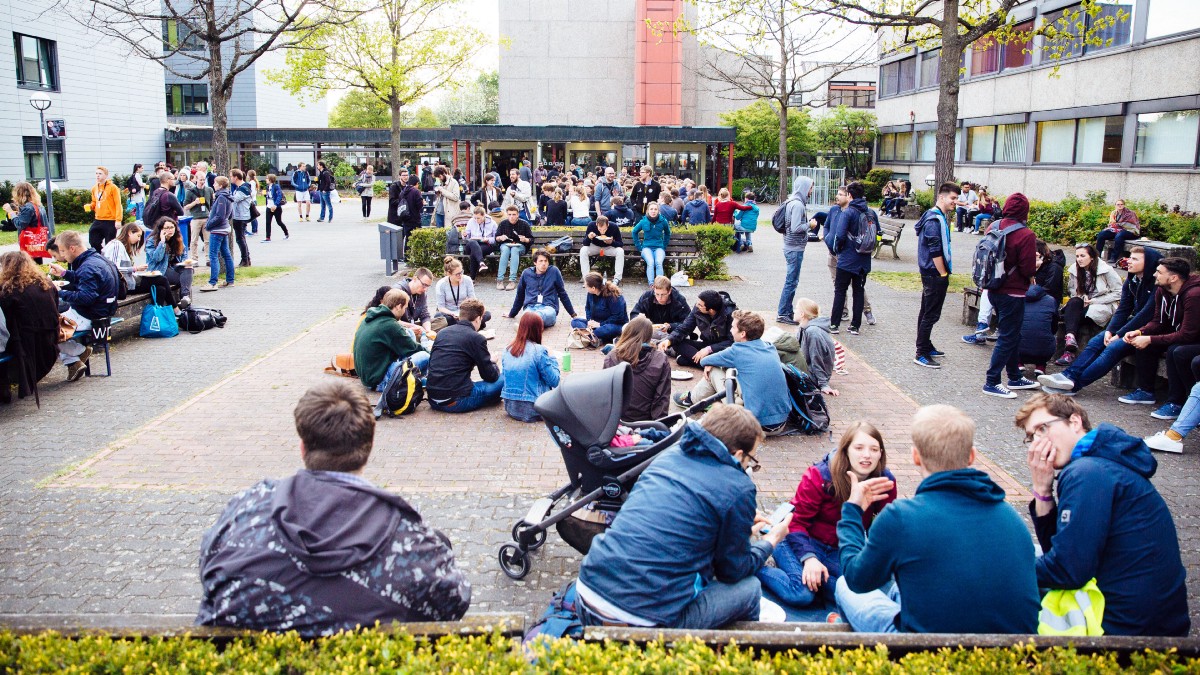
The choice is yours
A graduate’s reflection on faith and studies
Last summer I graduated from university. I received a diploma and rejoiced about the fact that another exciting season of life had finished. When I looked back on the four years I’d spent in university, I felt satisfied about my accomplishments — so many papers written, exams done, books read, experience gained, friendships made.
But at the same time, deep inside I had the feeling that I could have received more from these years. Because, to be honest, I have always been a bit of a lazy student. I would calculate the minimum amount of effort I’d need to put in to still get a good grade. Perhaps this attitude had formed because somewhere down the road I had lost enthusiasm about my discipline. Perhaps because I never really enjoyed writing academic papers. Or perhaps it was because all through my university years I was involved in a dynamic and exciting Christian student movement and often these meetings, camps or events were a priority over studies. Whatever it was, I have to admit that I never really put all of myself into my studies. I didn’t take an interest in current events in my study field. I just unenthusiastically “endured” studies.
Since then, I’ve had time to reflect on this more.
In his letter to the Colossians, Paul says:
“For in [Christ] all things were created: things in heaven and on earth, visible and invisible, whether thrones or powers or rulers or authorities; all things have been created through him and for him. He is before all things, and in him all things hold together.” Colossians 1:16–17 NIV
This tells us that all things — including our study subject — are created and exist in Christ. That means that going deeper into our studies is not a waste of time. On the contrary, as we dig into our study field, we will definitely meet Christ there.
I have noticed that often, when speaking about the motivation to study, Christians are not too different from non-believers. In fact, often the opposite — it is the followers of Christ who want to run through the university experience as quickly and as easily as possible, not taking part in university discussions or looking deeper into their academic field than necessary. Is it because the university teaches many “unchristian” things, which we would rather not look into, to protect our Christian minds? Or because we don’t really care about what is going on in the academic environment and there are more important things to do, like church ministry? I know this way of thinking very well; for a long time, I was this kind of student myself.
But what actually is the aim of studying, or what should be the motivation to do it? Well, for Christians, it is much more than just obtaining an education. Through studies we can find out more about our Creator and his story in this world. Every academic discipline in some way shows the miracle of creation, the tragic consequences of the fall and the future hope for the redemption of the world. For example, a medical student can see how wonderfully God has made the human body, and by researching severe illnesses, can discover how much this world has diverted from God’s prescribed course. Those who learn engineering and sciences can get to know God as the Almighty engineer. Art students can see the Author of all creativity. Physicists — the One who made and sustains the universe. Trainee teachers — the Source of all wisdom and the greatest teacher, Jesus Christ. Philologists — a God, who made the world through his Word, and told his story through the most influential Book ever.
What if God has put us in universities with a bigger purpose? What if he wants us to be faithful in our studies, stop distancing ourselves from that, which, in our opinion, is not worth our attention as Christians, and start thinking — where can I take part in this and be a blessing? What are the needs and current issues in my study field, and in my university? How can I make it a more just place?
What kind of student do you want to be? One that is rushing through your university years, barely touching the environment in which you study, because there are always more “Christian” things to give your attention to? Or do you want to be 100% Christian AND 100% student — one that is not missing out on an opportunity to glorify the Lord with your academic course and to bring righteousness and light into the field you have chosen? The choice is yours.
Elīna, social work; LKSB Latvia graduate
Elīna was one of 22 participants who attended the IFES Big Issues consultation in Germany earlier this year, and shared these reflections in response. In 2018, Big Issues regional consultations have taken place in Europe and Latin America. Organised in partnership with local movements, these consultations have brought together individuals from different countries to share and learn together about the issues facing Christians in their universities.
The Big Issues Project seeks to promote dialogue and theological engagement among faculty, students and IFES staff with the questions encountered in our universities. Read more on the Engaging the University page of our website.
The new IFES e-learning course, “An Introduction to Engaging the University”, explores these questions with thought-provoking quotes, readings, videos, questionnaires and worksheets.
Starting August 2018. Limited places available; sign-up before 15 July 2018. To sign up or learn more email engagingtheuni@ifesworld.org.
Here’s a short animation to help you think about what it might look like to engage the university as a Christian.

